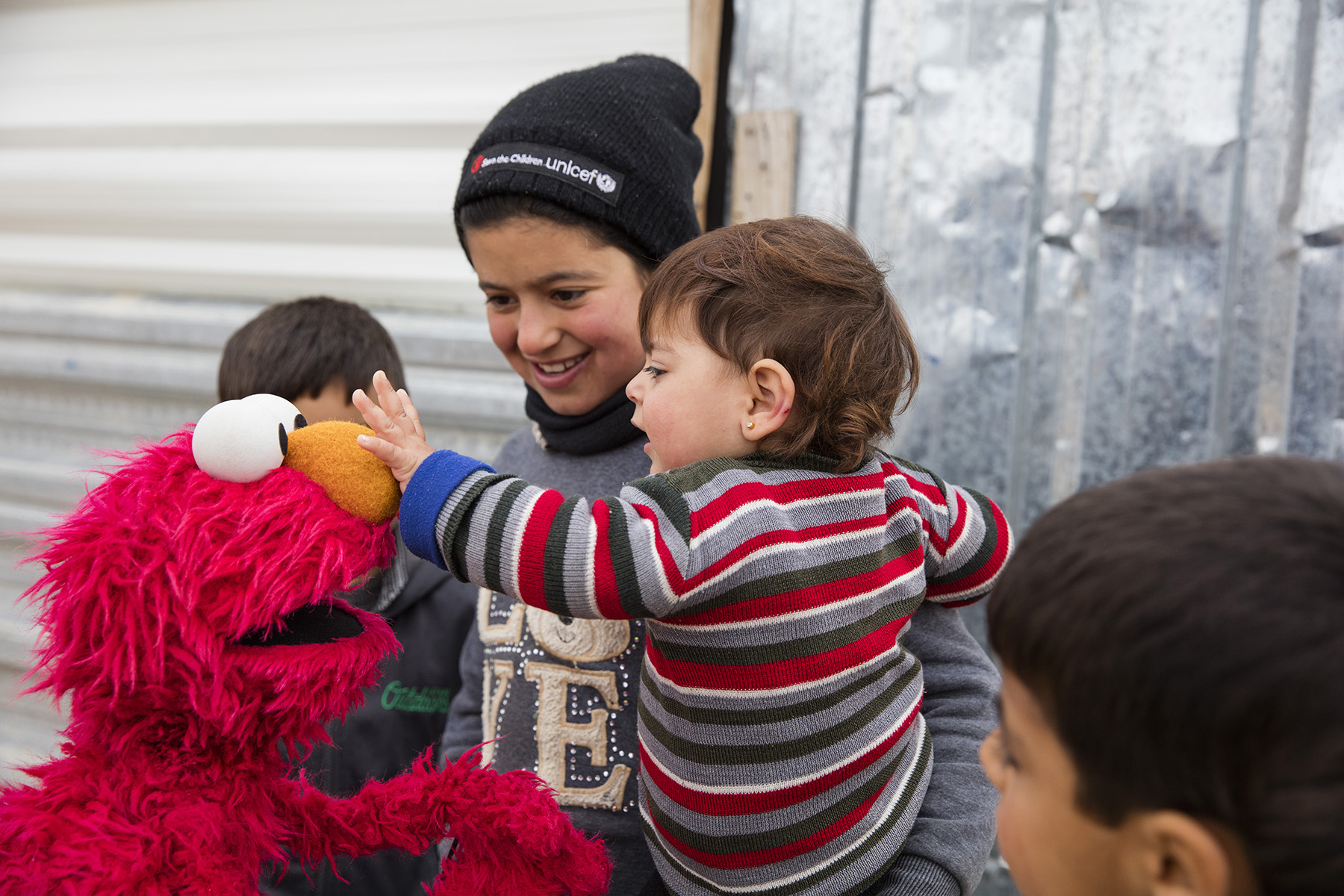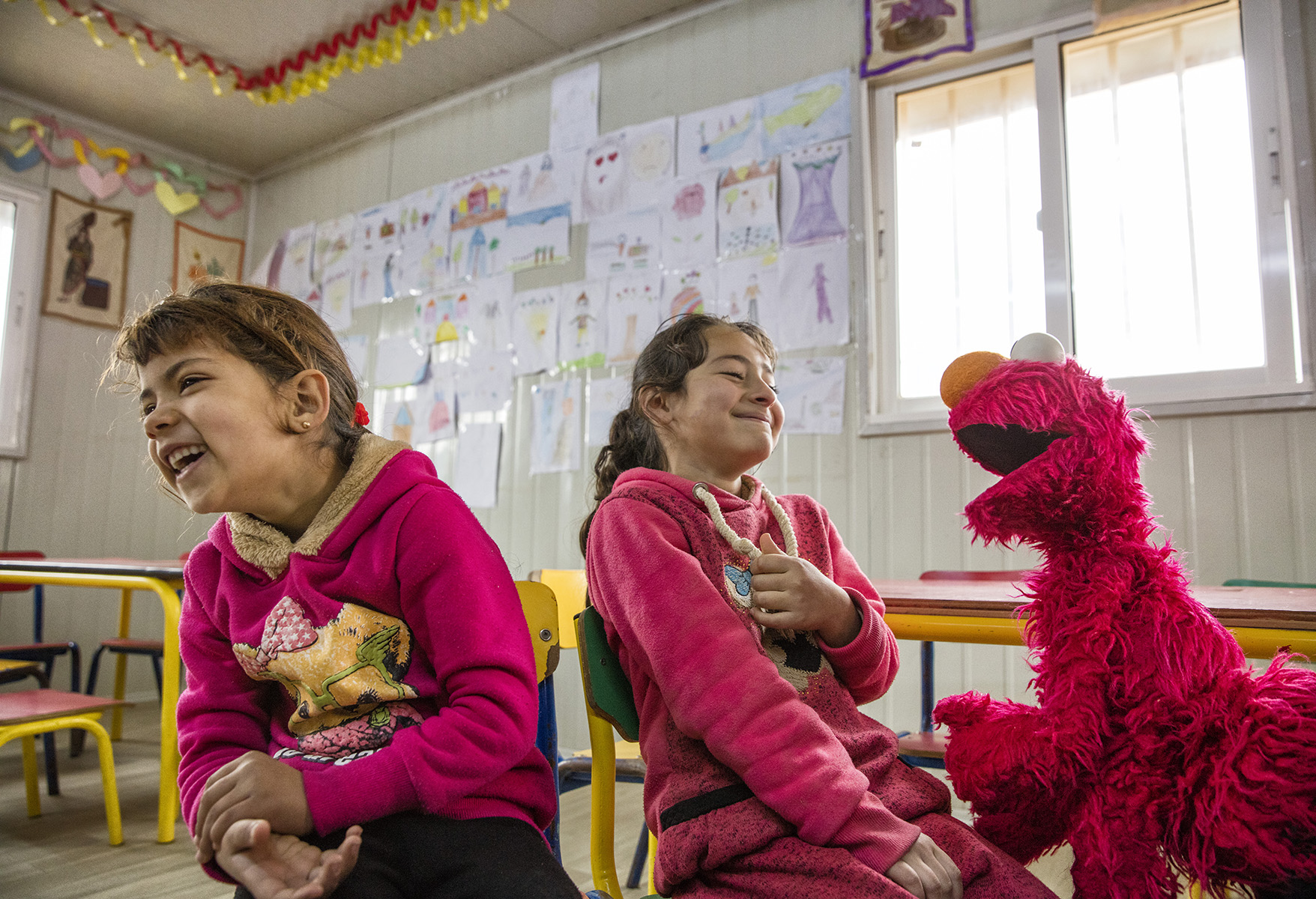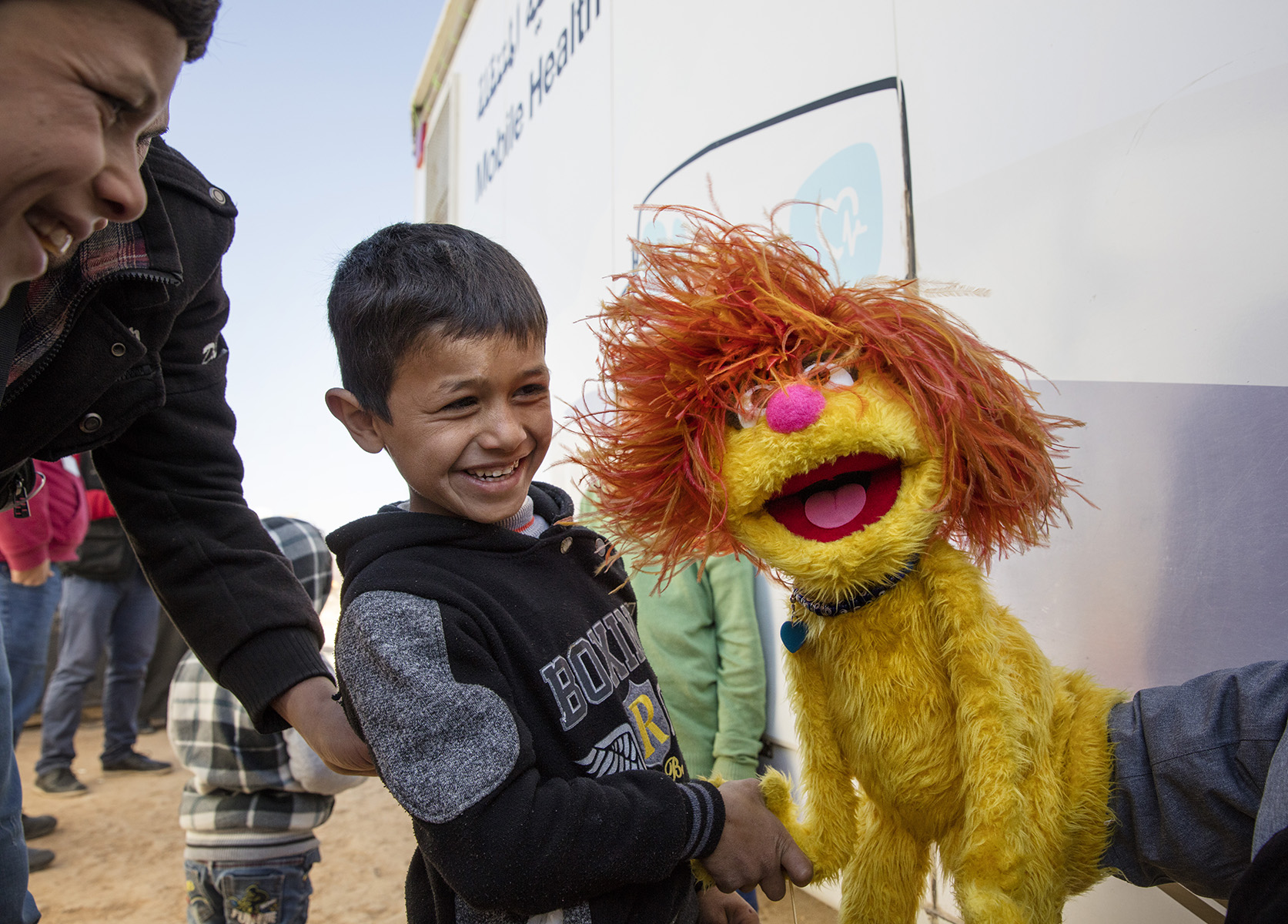We are living in a time when more families have been forced from their homes by conflict and crisis than at any other time since World War II. The most vulnerable among these are children. Refugee children are often deprived of educational opportunities, some are separated from their families, and all are affected by their caregivers’ stresses and losses.
Over 3.7 million Syrian children have been born since the Syrian conflict began more than 6 years ago, putting these children at risk of problems related to exposure to violence and trauma. This exposure comes at a time when these children should be growing, learning from the world around them, and developing critical socio-emotional skills, all of which provide a solid foundation for healthy development. Instead, they face major disruptions in their formal and informal education and development. Research shows that prolonged and severe stress and absence of stable, nurturing care can flood the brain with dangerously high levels of stress hormones, resulting in “toxic stress”. This can permanently damage the biological and neurological systems, causing poor physical and mental health, as well as lasting cognitive deficits. Without access to consistent, high-quality education and nurturing care, these children risk becoming part of a generation engulfed by conflict and crisis, the ramifications of which will be felt for many years to come.
The complexity and scale of the Syrian refugee crisis and its deleterious impacts on millions of children demands an ambitious solution. Sesame Workshop and the International Rescue Committee (IRC) are teaming up to provide Syrian refugee children with the chance to benefit from the early learning opportunities they need and deserve at these critical moments in their development. This bold project has been named as one of eight semi-finalists from over 1,900 applicants for the MacArthur Foundation’s 100&Change Challenge, which would provide an unparalleled and unprecedented opportunity to make a meaningful impact on the lives of children and families displaced by this conflict.
The Behavioral Insights Team (BIT) is thrilled to be joining this world-class collaboration, bringing an expertise on human behavior, decision-making, and rapid, rigorous evaluation and testing to the partnership.

Sesame Workshop/Ryan Heffernan
Sesame Workshop is unrivaled in its ability to turn proven methods for improving early childhood development into compelling content for children around the world. In turn, the International Rescue Committee has decades of experience building trusted relationships with communities in crisis and delivering a wide range of services – from health to education to economic assistance – to refugees and host communities worldwide, safeguarding them on their path from harm to home. Together, they can create tailored, engaging content that captivates their unique audiences and catalyzes positive developmental outcomes. They can bring critical early learning resources to Syrian refugees in Iraq, Jordan and Lebanon, as well as those children displaced inside Syria.
But we know that creating cutting-edge content isn’t enough. We must ensure that these critical programs are deployed using cost-effective strategies, including digital platforms, in order to reach the greatest number of affected children and families. We must also ensure that materials are delivered in ways that are appealing and easy to understand so that end users engage with them and, as a result, can better support children as they learn.
For example, if the caregivers involved in a child’s life – whether parents, grandparents or other adult family members responsible for a child’s care – don’t embrace developmentally appropriate content and show it to their children, then even the best programs won’t realize their full impact. As we seek to bring the benefits of Sesame Street into the homes and lives of refugee children, we must seek answers to tough questions about how best to deploy content or make it stick in fragile environments. We must strive to operationally understand how different contexts, cultures, and traditions affect engagement. These questions have human behavior – and its affiliated individual assumptions, predispositions, and histories – at their core.

Sesame Workshop/Ryan Heffernan
As a partner in this initiative, BIT will tackle these fundamental behavioral questions, using a human-centered approach to understanding people’s motivations and create dissemination strategies that respond to these context-specific behaviors. Moreover, BIT will bring rigorous evaluation to the early stages of this partnership, making sure that we understand the impact of different aspects of the program as these are being developed and that we adapt the final design based on the early evidence generated. As we promote greater uptake and engagement at different points of the program, we will be able to amplify the impact of the programmatic content.
BIT’s experience applying behavioral insights in similar situations around the world will be crucial in helping individuals engage with IRC and Sesame Workshop resources in the most efficient and effective ways possible. A recent project with refugee populations in Lebanon and Jordan, for example, showed that the framing of text messages can have a significant impact on encouraging refugee parents to engage with digital content that aids in their children’s development. In partnership with the IRC, BIT sent messages to 12,000 parents or caregivers and discovered that sharing scientific research about child development was a more powerful driver of content engagement than emphasizing the more immediate rewards or fun the caregiver might have in engaging with the content, a finding that runs counter to what we might intuitively expect. Not only did this research demonstrate the impacts of framing in a refugee text message context, it was also one of the first RCTs of its kind with this population, forging a path for how these types of experiments can be piloted and executed in a humanitarian crisis context.
In addition to using behavioral insights to promote digital communications, BIT’s expertise could help improve the effectiveness of other resources and services available to refugee caregivers, such as IRC home visiting programs or training operations.
Local staff, too, can play a role in successfully delivering content to the families they serve. BIT has done work previously demonstrating how changing the interaction between job coaches and unemployed clients to make them personalized, focused on advanced planning, and incorporating techniques to boost morale, can result in getting people back to work faster – an outcome that has historically been considered to be beyond the control of an individual agency and instead at the mercy of classic economic factors.
Adapting insights from behavioral science to a context of displacement will be critical for maximizing programmatic benefits in a new and uncertain environment. This is why BIT plans to embed rigorous, rapid trialing in IRC and Sesame Workshop programming to test different aspects of delivery, engagement, and reach. By testing and comparing pilot strategies, we can answer context-dependent questions about what strategies work in myriad contexts, under what conditions, and for whom. We will iteratively design, test, and expand on existing knowledge in the literature, in the field, and at this innovative intersection of service delivery to refugee children and caregivers in a humanitarian crisis situation. This will allow Sesame Workshop and the IRC to continue to design and build programs based on cutting-edge research and evidence, knowing what is most effective at every stage of a program, and with an aim to magnify and expand our impact to the greatest number of people in need.

Sesame Workshop/Ryan Heffernan
This partnership audaciously attempts to bring critical early childhood development resources and programming to one of the most complex geopolitical environments on Earth – all while rigorously evaluating the project’s contextual impacts and immediate outcomes. This project combines the internationally unparalleled skill of IRC’s service delivery in refugee and crisis contexts, Sesame Workshop’s decades of ingenuity and creativity in inspiring and educating children worldwide, and BIT’s commitment to rigorously evaluating the reach and impacts of these programs in unstable, untested, and complex environments. Through these unprecedented partnerships – along with generous funding from grants like the MacArthur Foundation’s 100&Change Challenge – we have the opportunity to positively impact an entire generation of Syrian refugee children. Through this initiative, we can promise to indefatigably pursue the opportunity for all children to grow, explore, and learn – no matter their circumstances.



